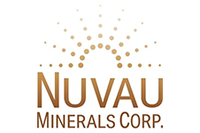Lacking the luxury and panache of the more popular precious metals, zinc has earned its keep over the centuries as an industrial base metal and, in commercial applications, as zinc oxide.
By James Wellstead – Exlusive to Zinc Investing News
Lacking the luxury and panache of the more popular precious metals, zinc has earned its keep over the centuries as an industrial base metal and, in commercial applications, as zinc oxide. Though first forged with copper to make brass and bronze some 4 to 5,000 years ago, it was not until the 14th century in India that zinc was produced at a large scale for industrial use.
Today, about 50 percent of the 11 million tonnes of zinc produced each year is used for galvanizing steel to protect the metal from rust and corrosion. Die-casting and zinc-based alloys, including brass and bronze, make up 17 percent each of current uses and another 6percent is used as rolled zinc. Altogether, these industrial uses make zinc the 4th most commonly used metal in the world. Recycled zinc also makes up a considerable amount of zinc use, as only 70 percent of zinc is mined with the remaining coming from recycling, a figure which increases each year.
Outside of these industrial uses, zinc oxide and zinc sulphates are commonly used in a variety of commercial purposes primarily by chemical, paint and rubber industries. Zinc-related products range from medicines, dietary supplements, sunscreen, paints, vulcanized rubber, phosphorescent applications and heat sinks in laptops and cell phones.
While zinc is deposited and mined in more than 50 countries, production is primarily located within a handful of countries. China leads production with about 30 percent of world output at 3.1 million metric tons of production in 2009, and Peru, Australia, the United States and Canada round out the top five suppliers. Zinc is typically found with other metals including lead, copper, gold and silver. Rarely mined individually, zinc is classified into four major deposit types: volcanic hosted massive sulphides carbonate hosted, sediment hosted and intrusion related deposits. Sediment hosted deposits are the most common and often offer the greatest concentrations of lead and zinc, ranging from 10-20 percent, and typically contain high silver deposits as well.
Due to this lower concentration, zinc ore deposits is made into concentrate by crushing and grounding the ore to separate it from other minerals. Typically, a zinc concentrate contains about 55 percent of zinc with some copper, lead and iron. With these refining requirements, environmental concerns with zinc are often related to the sulphur dioxide and cadmium emissions, as well as the risk of zinc leaching into aquifers or rivers.
While zinc use in chemical, electronic, and pigment applications has many potential substitutes, its use as a galvanizing agent dominates in industries supporting significant infrastructure projects. As a result, (like most commodities these days) one needs to pay close attention to developing countries to explain how and when zinc demand changes. China alone is important as it is the world’s top zinc consumer and refiner with 4.125 million tonnes consumed and 4.4 million tonnes refined in 2009, consuming 59 percent more zinc than the Europe, Japan and the U.S. combined. The primary drive for the product is to support the rapid infrastructure growth in countries like China and India which rely on zinc in the construction of buildings, homes and businesses.
More recently, zinc inventories have been making news as they climb to record levels in London and Shanghai not seen in years. As a result, zinc prices have also been low, dipping below $2,100 per tonne this may on concerns that emerging market growth may begin to slow. However, with a strong role in infrastructure and industrial use, Goldman Sachs recently stated it was bullish on the outlook for zinc in 2012 with demand outstripping supply as the global economy continues its rebound focused on growth in emerging markets.
